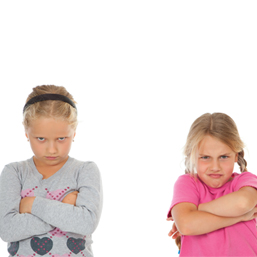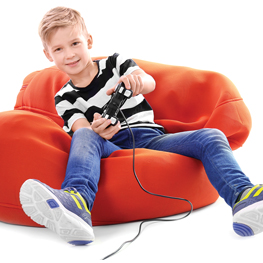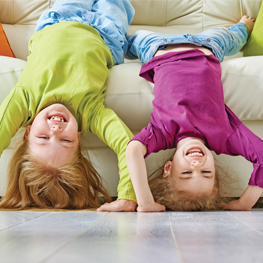



We’ve all seen an older sibling hug the baby a little too hard. We’ve witnessed a weary parent’s unsuccessful attempts to referee yet another round of, “He stole my toy!” Like many parents, I wanted to avoid these scenarios when I became pregnant for the second time, so I took my oldest son to sibling classes and included him in baby preparations. Once we became a family of four, I attempted to divide my time and attention equally. I hoped that this strategy would encourage sibling harmony, but wondered if my efforts would matter. Thankfully, experts confirm that parents can significantly impact sibling relationships. “Parents can make a difference,” says Adele Faber, author of Siblings Without Rivalry: How to Help Your Children Live Together So You Can Live Too. “Our attitude and words have power. We can lead rivals toward peace,” she says.

It’s sad, but true - our children carry a lot of stress inside them. We live in a fast-paced world in which information, expectations, and experiences are all on overload. It takes proactive measures to keep our children’s mental health strong and vibrant. Some children will experience many more fears than others: sleeping in the dark, bad dreams, fears of bullying, for example, will be bigger challenges for some. But all children and teens harbor some fears and even though they may not verbalize them, it’s a good idea to address the issue of their fears, anxieties, and worries. Here are five books written by mental health professionals to help your children overcome their fears.

It’s time for karate class,” I said to my 13-year-old son. “Do I have to go?” He asked. “Yes,” I said. This has been a common exchange between us for a variety of activities over the past 10 years. He has tried everything from baseball to cooking class - yet nothing holds his interest as much as video games do. Every now and then I wonder if it is worth investing the money and time into the activities or sports he doesn’t want to participate in. But if I hold off on signing him up for things, he does nothing except play video games until we try something new again; it’s a never-ending cycle.

Most often, friendships serve as a positive force in children’s lives, helping to cement a sense of identity and belonging while kids learn real-world lessons in sharing, empathy, and kindness. Friends can impart the type of ‘positive peer pressure’ that spurs the growth of positive personality characteristics, like tenacity and generosity. But there’s a dark side to childhood friendships. When things like bullying, gossip, or jealousy take hold, a child’s health and happiness can suffer. Research from the University of Alabama links jealousy in adolescent friendships to low self-worth, aggression, and loneliness.
Calgary’s Child Magazine © 2024 Calgary’s Child